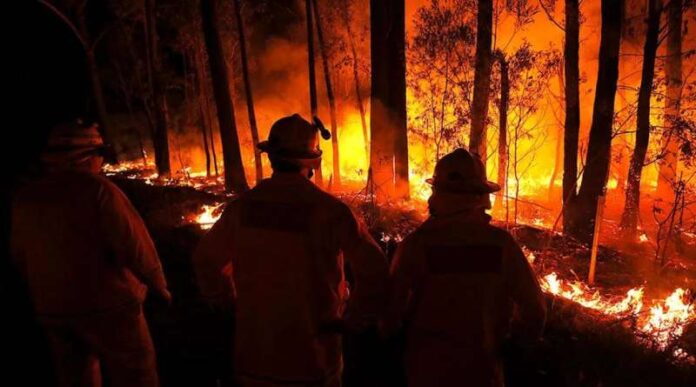A new study finds that climate change is contributing to the more frequent occurrence of wildfires in California and making fires more flammable.
The study, titled “Climate Warming Increases the Risk of Extreme Daily Wildfire Growth in California” and published on Wednesday in the scientific journal Nature, reported that climate warming has increased the frequency of extreme daily wildfire growth by 25 percent on average compared to conditions in the pre-industrial era, reports Al-Rai daily.
Using a machine learning model, the researchers analyzed 18,000 fires that broke out in California from 2003 to 2020 and the weather conditions in which those fires occurred.
The climate model simulated a world free of the effects of global warming, and the researchers then compared the simulated world to the real world.
They found that certain factors can make fires grow into severe fires (those that spread quickly and burn explosively).
Of the 18,000 fires analyzed by the study, 380 fires spread over an area of 10,000 acres (40.46 square kilometers) in at least one day.
For example, the Camp Fire, which burned down Paradise, California, in 2018, grew so quickly that it burned 10,000 acres (40.46 square kilometers) in just 90 minutes.
Over the course of 17 days, the Camp Fire burned more than 150,000 acres (607.02 square kilometers), killed 85 people and forced tens of thousands of others to flee their homes.
The study revealed that the critical factor that primarily affects fire behavior is the effect of temperature on fuel moisture. This is because fires can become larger and more intense when they have enough dry, brittle fuel to burn.
The researchers warned that the risk of explosive fires will continue to increase, as global temperatures will continue to rise even after global emissions slow or stop.
The number of fast-growing fires could nearly double by the end of the century, the researchers found.
They said an effective way to mitigate the risk of severe fires is to remove additional fuel from overcrowded forests so that there are fewer flammable fuels.

















